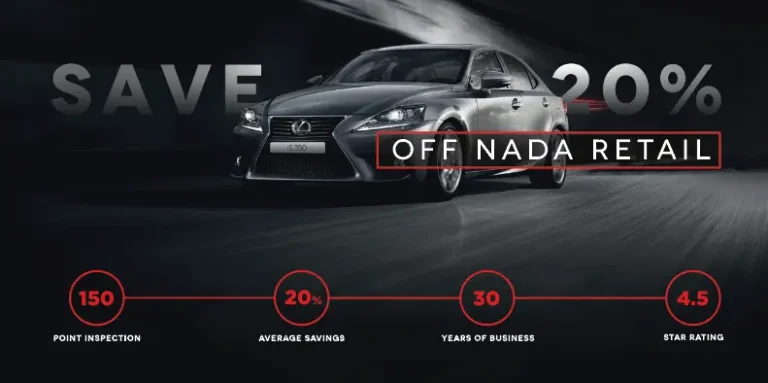Rent A Car Brands: Your Comprehensive Guide to Navigating the Vehicle Rental Landscape
Rent A Car Brands: Your Comprehensive Guide to Navigating the Vehicle Rental Landscape cars.truckstrend.com
The modern world, with its fluid travel patterns, dynamic business needs, and spontaneous adventures, often necessitates a temporary set of wheels. Enter the realm of "Rent A Car Brands" – a vast and intricate ecosystem of companies dedicated to providing convenient, flexible, and reliable transportation solutions. Far more than just a collection of logos, these brands represent a diverse spectrum of services, vehicle types, pricing structures, and customer experiences designed to meet every conceivable need. Understanding the nuances between these brands is not just about finding the cheapest rate; it’s about making an informed decision that ensures a smooth journey, whether you’re embarking on a cross-country road trip, navigating a new city for business, or simply need a temporary replacement vehicle. This comprehensive guide will delve into the major players, emerging trends, and essential considerations to help you confidently choose the right rent-a-car brand for your next adventure.
The Giants of the Industry: Global Rental Car Conglomerates
Rent A Car Brands: Your Comprehensive Guide to Navigating the Vehicle Rental Landscape
At the apex of the rental car industry stand a few colossal holding companies, each managing a portfolio of well-known brands that cater to different market segments. These conglomerates leverage their immense scale to offer unparalleled reach, extensive fleets, and sophisticated reservation systems.
-
Enterprise Holdings: This privately-held behemoth is the largest car rental company in the world by revenue and fleet size. It operates three primary brands:
- Enterprise Rent-A-Car: Known for its strong focus on local, neighborhood rentals and excellent customer service, Enterprise is often the go-to for insurance replacements or short-term local needs. It also has a significant airport presence.
- National Car Rental: Geared towards frequent business travelers, National offers a streamlined experience with its "Emerald Club" loyalty program, allowing members to bypass the counter and choose their own vehicle from a designated aisle.
- Alamo Rent A Car: Positioned as a value-oriented brand for leisure travelers, Alamo is popular for family vacations and often offers competitive rates, particularly at airport locations.

-
Hertz Global Holdings: A globally recognized name, Hertz operates a trio of brands catering to various budgets and preferences:
- Hertz: The flagship brand, Hertz is a premium choice known for its diverse fleet, including luxury and specialty vehicles, and its "Gold Plus Rewards" program for expedited service. It targets both business and leisure travelers seeking quality and reliability.
- Dollar Car Rental: A more budget-friendly option, Dollar focuses on leisure travelers and offers competitive rates, though often with fewer perks than its premium counterpart.
- Thrifty Car Rental: Similar to Dollar, Thrifty is another value brand under the Hertz umbrella, appealing to cost-conscious travelers looking for economical transportation.

-
Avis Budget Group: This global player also manages a robust collection of brands:
- Avis Rent A Car: A long-standing premium brand, Avis is renowned for its strong corporate relationships, executive service, and a comprehensive loyalty program ("Avis Preferred"). It’s a favorite among business travelers and those seeking a higher level of service.
- Budget Car Rental: As its name suggests, Budget provides more economical options than Avis, targeting leisure and value-conscious renters. It offers a good balance of affordability and a reliable fleet.
- Zipcar: A pioneer in the car-sharing movement, Zipcar offers hourly or daily rentals, primarily in urban areas and university campuses. It’s ideal for short trips, errands, or those who don’t need a car for extended periods.

These giants offer the advantages of widespread availability, extensive vehicle choices, and well-established loyalty programs, making them reliable choices for most rental needs.
Budget-Friendly Options: Getting More for Less
Beyond the major conglomerates, several independent and regional brands specialize in offering highly competitive prices, often by operating with leaner overheads or focusing on specific niches.
- Fox Rent A Car: Known for its aggressive pricing, Fox often presents some of the lowest rates, particularly at major airport locations. Renters should be aware that their fleet might be slightly older, and customer service can sometimes be less polished than the premium brands.
- Payless Car Rental: Now part of Avis Budget Group but maintaining its distinct identity, Payless targets the budget-conscious traveler. It offers no-frills rentals at competitive prices, making it a solid option for those prioritizing cost above all else.
- Ace Rent A Car: A network of independent car rental operators, Ace provides local and regional options, often with lower prices than the big names. Service levels can vary, but it’s an excellent choice for finding deals in specific areas.
- Sixt: While Sixt is a large international player (especially prominent in Europe), it often positions itself as a budget-friendly premium alternative in the US market, offering newer cars and a diverse fleet at competitive prices.
Choosing a budget brand requires careful attention to the fine print regarding fuel policies, insurance options, and potential additional fees, but they can offer significant savings, especially for longer rentals.
Luxury and Specialty Rentals: When Standard Won’t Do
For those occasions demanding more than a standard sedan, several brands or dedicated divisions cater to luxury, performance, or specific utility needs.
- Hertz Dream Cars & Prestige Collection: Hertz offers a curated selection of high-end luxury vehicles, sports cars, and premium SUVs for those seeking an elevated driving experience.
- Avis Signature Series: Similar to Hertz, Avis provides a premium fleet of luxury sedans, convertibles, and SUVs for discerning travelers or special events.
- Enterprise Exotics & Exotic Car Collection: Enterprise offers a range of high-performance and luxury vehicles, from Ferraris to Bentleys, perfect for making a statement or fulfilling a driving dream.
- Specific Van & Truck Rentals: Brands like Penske, U-Haul, and Ryder specialize in moving trucks and vans, while some major car rental brands also offer passenger vans and cargo vans for group travel or business needs.
These rentals come with a higher price tag and often stricter age requirements, higher security deposits, and specific insurance considerations.
Peer-to-Peer Car Sharing Platforms: The Disruptors
The sharing economy has revolutionized the rental landscape, introducing peer-to-peer (P2P) platforms that connect individual car owners with renters.
- Turo: Often dubbed the "Airbnb for cars," Turo allows car owners to rent out their personal vehicles. This offers an incredibly diverse selection, from economy cars to classic convertibles and luxury SUVs, often at competitive prices. Pick-up and drop-off can be highly flexible.
- Getaround: Similar to Turo, Getaround focuses on short-term, instant rentals, often utilizing keyless entry technology. It’s popular for urban dwellers needing a car for a few hours.
- GIG Car Share (by AAA): A one-way car-sharing service, predominantly in select cities, allowing users to pick up and drop off cars within a designated "home zone."
P2P platforms offer unique vehicles and flexibility, but renters should be meticulous about understanding the platform’s insurance policies, vehicle condition, and communication with individual owners.
Key Factors When Choosing a Rent-A-Car Brand
Selecting the right rental car brand goes beyond recognizing a name. Consider these crucial factors to ensure a satisfying experience:
-
Price & Value:
- Base Rate: The advertised daily or weekly cost.
- Fees & Taxes: Airport surcharges, concession recovery fees, vehicle licensing fees, local taxes – these can significantly increase the final price.
- Fuel Policy: "Full-to-full" is usually best, but understand options like pre-purchased fuel or per-gallon charges.
- Add-ons: GPS, child seats, roadside assistance – evaluate if you truly need them.
-
Location & Availability:
- Airport vs. Off-Airport: Airport locations are convenient but often have higher fees. Off-airport locations can be cheaper but require transportation to reach.
- One-Way Rentals: Some brands are better equipped for one-way trips, though they typically incur a drop-off fee.
- Fleet Size & Variety: Do they have the specific car type you need (e.g., SUV, minivan, electric vehicle)?
-
Customer Service & Reputation:
- Online Reviews: Check Google, Yelp, and travel forums for recent customer experiences.
- Loyalty Programs: If you rent frequently, programs like Enterprise Plus, Hertz Gold Plus Rewards, or Avis Preferred can offer significant benefits (expedited service, upgrades, free rental days).
-
Rental Terms & Conditions:
- Age Restrictions: Most companies require renters to be 21-25 years old, with an underage surcharge for those under 25.
- Mileage Limits: Unlimited mileage is standard for leisure, but some budget or specialty rentals may have daily limits.
- Deposit Requirements: Credit card holds can vary significantly.
- Additional Drivers: Policies and fees for adding extra drivers.
-
Insurance Options:
- Collision Damage Waiver (CDW) / Loss Damage Waiver (LDW): Waives your responsibility for damage/loss to the rental vehicle. Check if your personal car insurance or credit card provides this coverage.
- Liability Insurance: Covers damage or injury to third parties. Your personal auto policy might extend to rentals.
- Personal Accident Insurance (PAI) / Personal Effects Coverage (PEC): Covers medical expenses or lost belongings. Often redundant if you have health or homeowners insurance.
Tips for a Smooth Rental Experience
- Book in Advance: Especially during peak seasons or for specific car types, early booking secures better rates and availability.
- Compare Across Brands: Use online aggregators (Kayak, Expedia) but also check individual brand websites for direct deals or loyalty program benefits.
- Understand Fuel Policy: Return the car with the agreed-upon fuel level to avoid hefty refueling charges.
- Inspect the Vehicle: Before leaving the lot, thoroughly inspect the car for any existing damage (scratches, dents, cracks) and take photos or videos. Ensure it’s noted on your rental agreement.
- Decline Unnecessary Add-ons: Rental agents are trained to upsell. Politely decline things you don’t need or already have coverage for.
- Check Your Personal Insurance: Call your auto insurance provider and credit card company to understand what rental coverage they offer.
- Return on Time: Late returns can incur significant penalties, sometimes even an extra day’s charge for just an hour over. Communicate with the rental company if you anticipate a delay.
Potential Challenges and Solutions
- Hidden Fees: Challenge: Surprise charges for airport fees, additional drivers, or refueling. Solution: Read the rental agreement carefully, ask for a full breakdown of charges, and question anything unclear before signing.
- Vehicle Unavailability: Challenge: The reserved car type isn’t available upon arrival. Solution: Book early, be flexible with car type, and confirm your reservation directly with the branch a day or two before pick-up.
- Damage Disputes: Challenge: Being charged for pre-existing damage or minor wear and tear. Solution: Document the car’s condition extensively before and after your rental with time-stamped photos/videos.
- Insurance Complexities: Challenge: Not understanding what’s covered and paying for redundant insurance. Solution: Research your personal insurance and credit card benefits beforehand.
- Long Queues/Wait Times: Challenge: Especially at airport counters during peak times. Solution: Join loyalty programs (e.g., Hertz Gold, National Emerald) that offer expedited pick-up, or choose off-airport locations.
Estimated Daily Rental Price Ranges by Brand Category & Vehicle Type (Illustrative)
Please note: These prices are highly illustrative and can vary significantly based on location, time of year, duration of rental, specific car model, demand, and promotions. They are meant to provide a general idea of relative costs between categories. All prices are in USD.
| Brand Category | Example Brands | Economy Car (e.g., Nissan Versa) | Mid-Size Sedan (e.g., Toyota Corolla) | Standard SUV/Minivan (e.g., RAV4/Pacifica) | Luxury/Specialty (e.g., BMW 3 Series/Mustang) |
|---|---|---|---|---|---|
| Budget-Friendly | Alamo, Dollar, Thrifty, Fox, Payless | $30 – $60 | $40 – $70 | $60 – $100 | $100 – $200 (limited options) |
| Mid-Range/Standard | Enterprise, Budget, Sixt (base) | $40 – $70 | $50 – $85 | $70 – $120 | $150 – $300 |
| Premium | Hertz, Avis, National | $50 – $80 | $60 – $100 | $80 – $150 | $200 – $500+ (or more for exotic) |
| Peer-to-Peer | Turo, Getaround | $25 – $70 | $35 – $90 | $50 – $150 | $100 – $1000+ (highly variable by car) |
Disclaimer: Prices are estimates for a typical weekday rental, excluding taxes, fees, and optional add-ons. Weekend, holiday, and one-way rentals will likely be higher. Longer rental periods often result in lower daily rates.
Frequently Asked Questions (FAQ) about Rent A Car Brands
Q: What’s the minimum age to rent a car?
A: Most rental car brands require renters to be at least 21 years old. Renters between 21-24 typically incur an "underage driver" surcharge, which can be significant. Some luxury or specialty vehicles may require a minimum age of 25.
Q: Do I need to buy the rental car company’s insurance?
A: Not necessarily. Your personal auto insurance policy may extend coverage to rental cars. Many credit cards also offer secondary collision damage waiver (CDW) coverage if you pay for the rental with their card. It’s crucial to check with your insurance provider and credit card company before renting.
Q: Can I rent a car with a debit card?
A: While some major brands allow debit card rentals, it often comes with stricter requirements. These can include a credit check, higher security deposit, proof of return travel (e.g., flight ticket), and restrictions on certain vehicle types. It’s always best to use a credit card if possible, or confirm the debit card policy with the specific branch in advance.
Q: What’s the difference between airport and off-airport locations?
A: Airport locations are convenient for travelers flying in, but they often have higher fees and taxes (like concession recovery fees and airport surcharges) that increase the total cost. Off-airport (neighborhood) locations typically have lower rates and fewer additional fees, but require you to arrange transportation to reach them.
Q: What happens if I return the car late?
A: Most rental companies have a grace period (often 29 minutes to an hour) before charging for a late return. After the grace period, you’ll typically be charged for an extra hour, and if you’re significantly late, you may be charged for an entire additional day at a higher, non-discounted rate. It’s always best to contact the rental branch if you anticipate a late return.
Q: How do loyalty programs work, and are they worth joining?
A: Loyalty programs (e.g., Hertz Gold Plus Rewards, National Emerald Club, Avis Preferred) are free to join and offer benefits like expedited service (skipping the counter), earning points for free rental days, and potential vehicle upgrades. If you rent cars even a few times a year, joining these programs can save you time and money.
Conclusion
The world of rent-a-car brands is diverse and dynamic, offering an unparalleled range of choices to suit every budget, preference, and travel need. From the global reach of industry giants like Enterprise, Hertz, and Avis to the cost-effective solutions of budget brands and the innovative flexibility of peer-to-peer platforms, understanding the unique value proposition of each brand is key. By carefully considering factors such as price, location, vehicle type, and customer service, and by leveraging practical tips for a smooth rental experience, you can navigate this landscape with confidence. Ultimately, choosing the right rent-a-car brand isn’t just about securing transportation; it’s about empowering your journey and ensuring that your time on the road is as enjoyable and hassle-free as possible.






